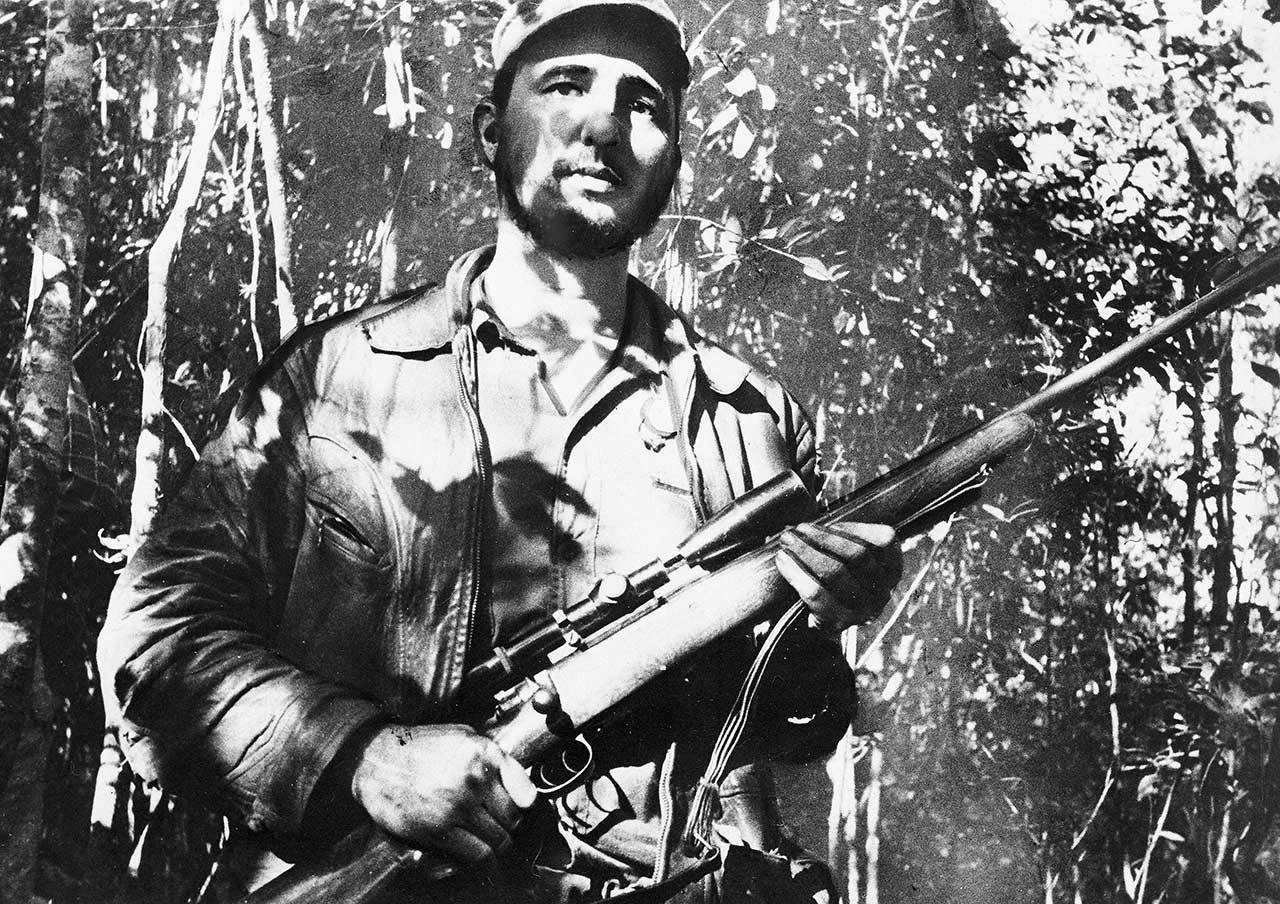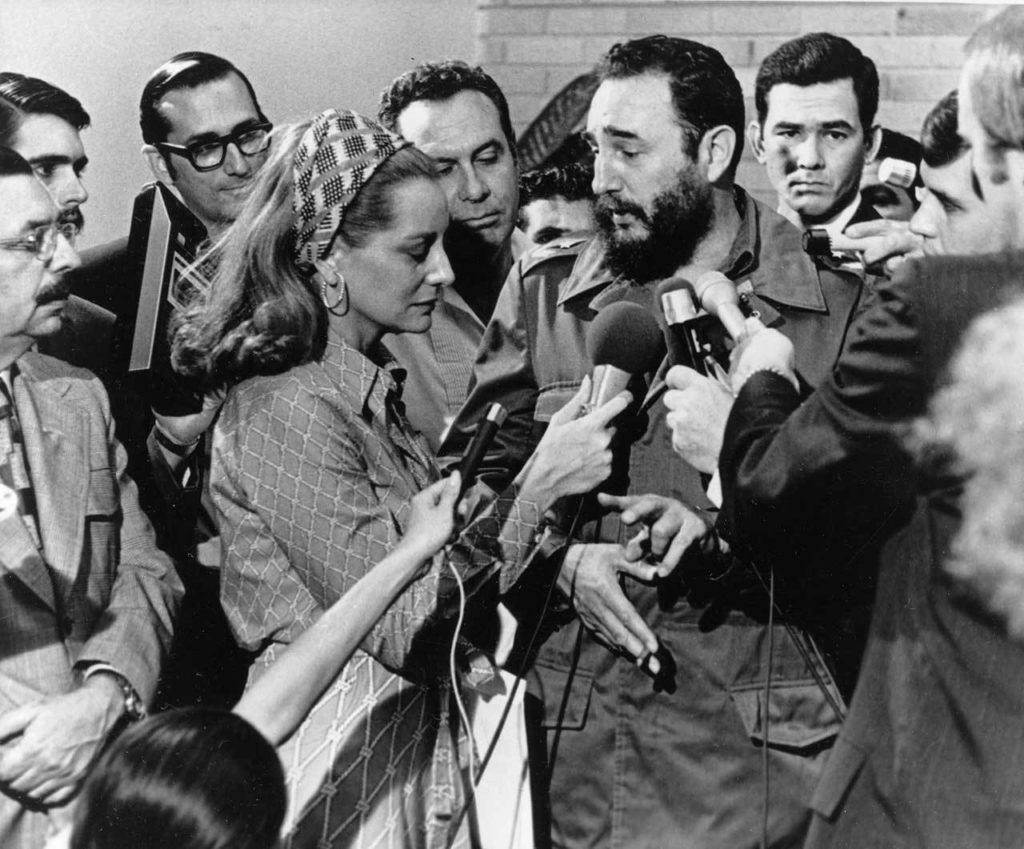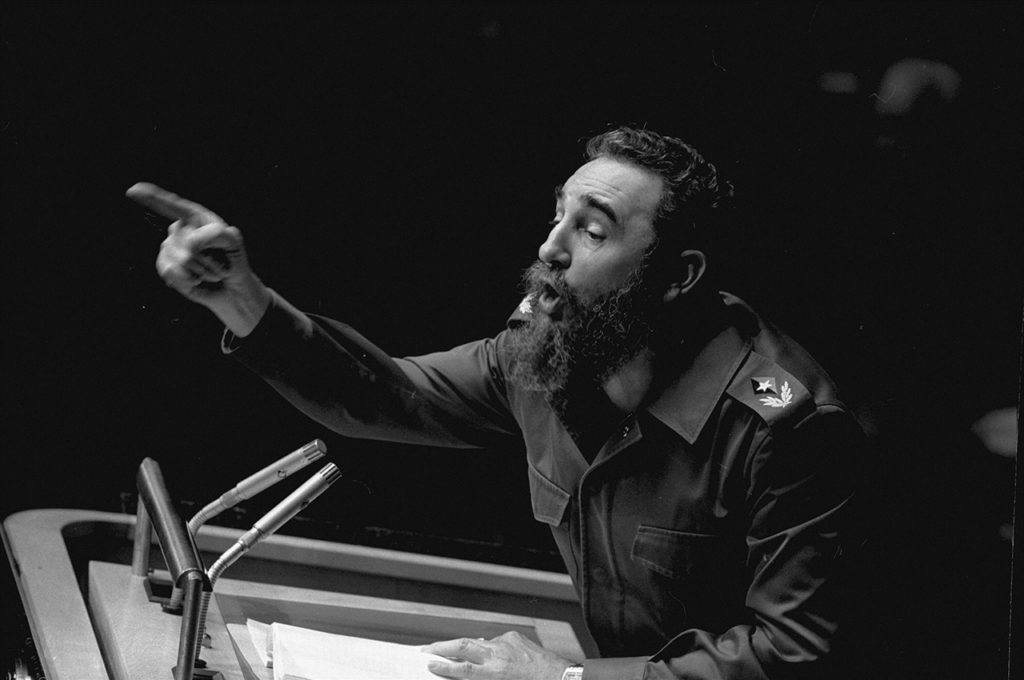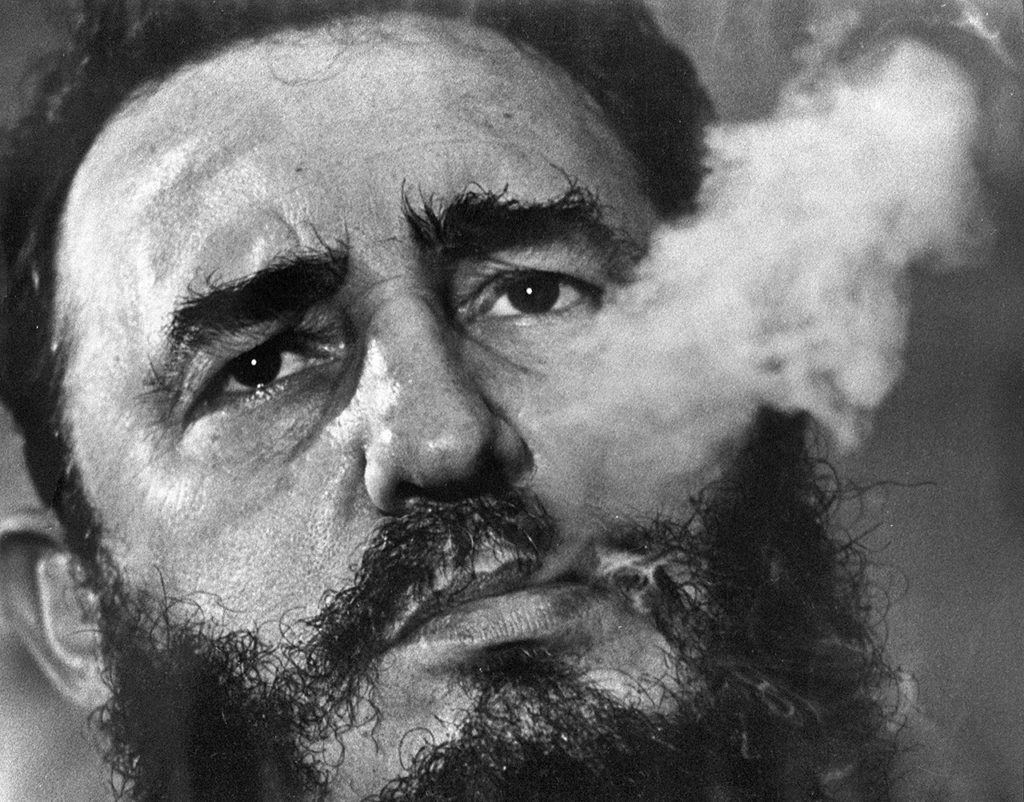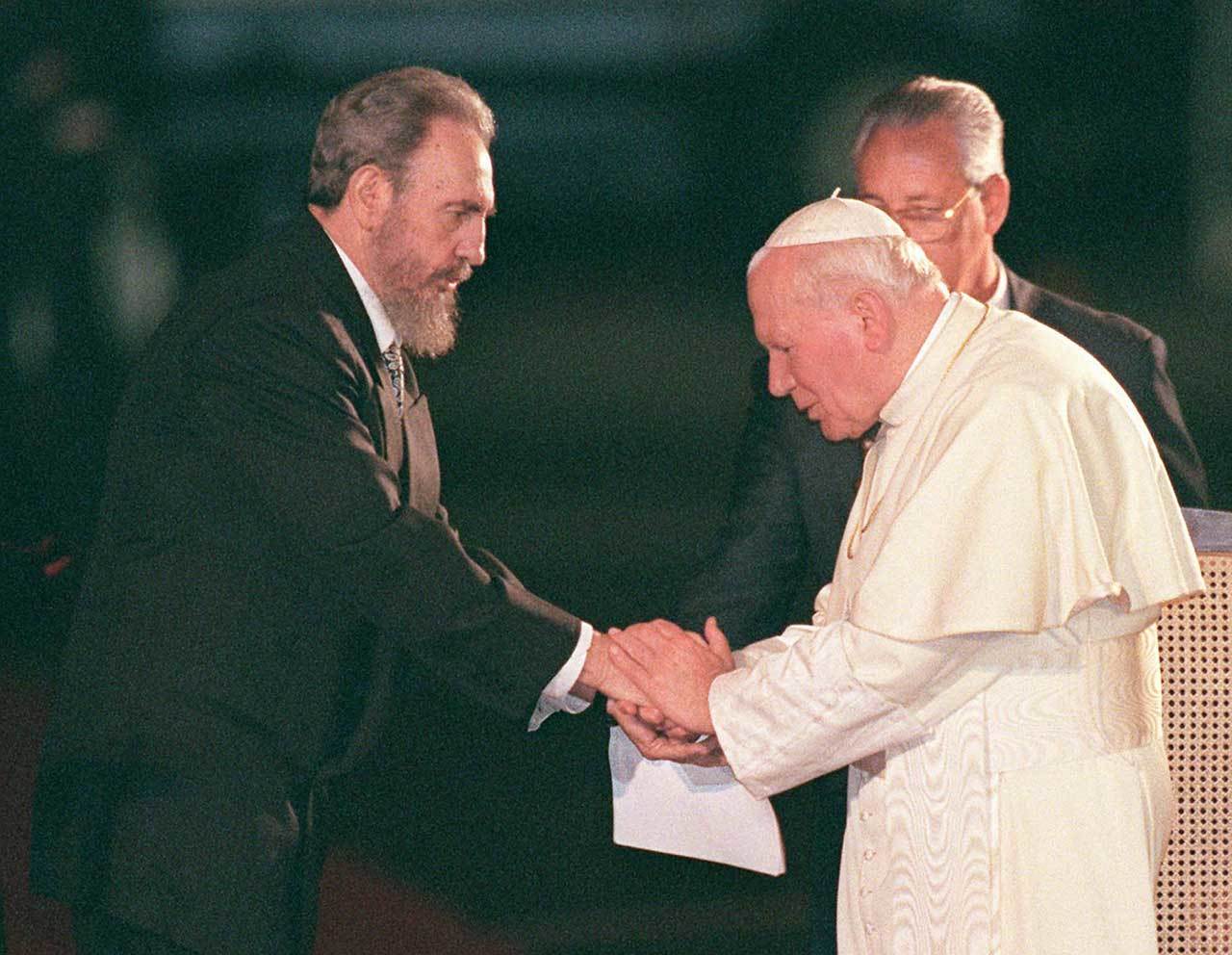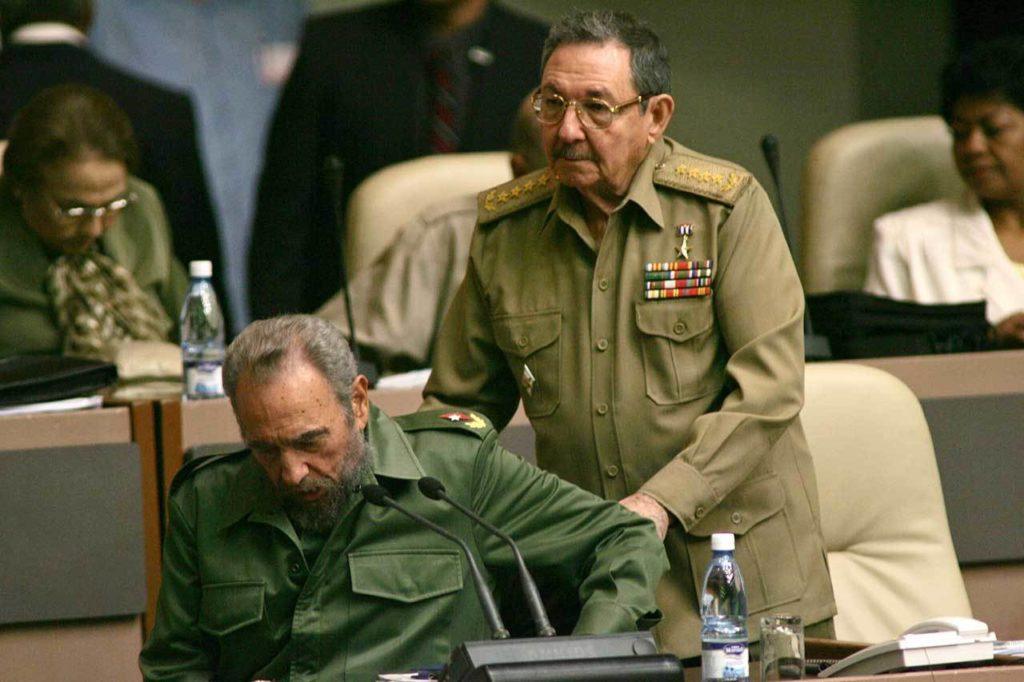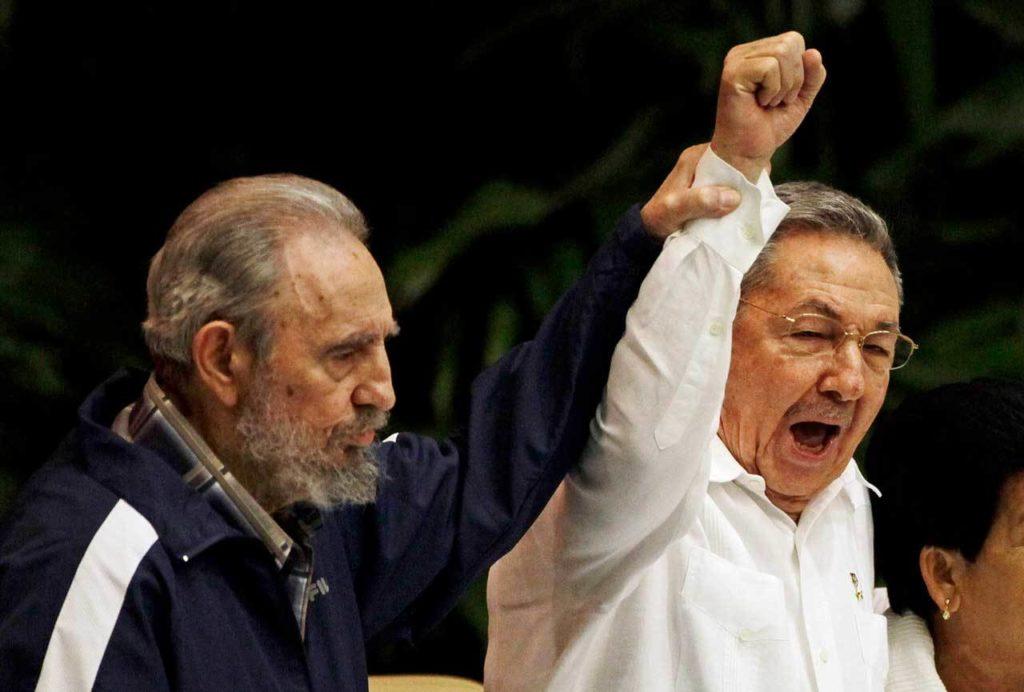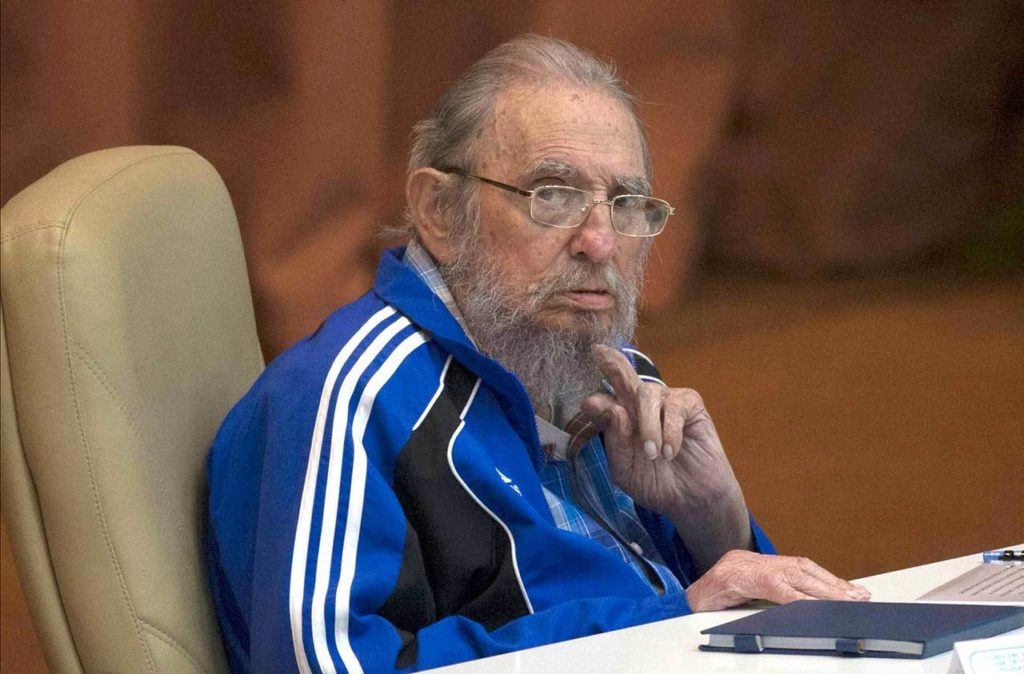Associated Press
HAVANA — Fidel Castro, who led his bearded rebels to victorious revolution in 1959, embraced Soviet-style communism and defied the power of 10 U.S. presidents during his half-century of rule in Cuba, has died at age 90.
With a shaking voice, President Raul Castro said on state television that his older brother died at 10:29 p.m. Friday. He ended the announcement by shouting the revolutionary slogan: “Toward victory, always!”
Castro’s reign over the island nation 90 miles (145 kilometres) from Florida was marked by the U.S.-backed Bay of Pigs invasion in 1961 and the Cuban Missile Crisis a year later that brought the world to the brink of nuclear war. Castro, who outlasted a crippling U.S. trade embargo as well as dozens, possibly hundreds, of assassination plots, died 10 years after a life-threatening illness led him to turn over power to his brother.
Castro overcame imprisonment at the hands of dictator Fulgencio Batista, exile in Mexico and a disastrous start to his rebellion before triumphantly riding into Havana in January 1959 to become, at age 32, the youngest leader in Latin America. For decades he was a source of inspiration and support to revolutionaries from Latin America to Africa, even as Cubans who fled to exile loathed him with equal measure.
His commitment to socialism was unwavering, though his power finally began to fade in mid-2006 when a gastrointestinal ailment forced him to hand over the presidency to Raul in 2008, provisionally at first and then permanently. Castro’s defiant image lingered long after he gave up his trademark Cohiba cigars for health reasons and his tall frame grew stooped.
“Socialism or death” remained Castro’s rallying cry even as Western-style democracy swept the globe and other communist regimes in China and Vietnam embraced capitalism, leaving this island of 11 million people an economically crippled Marxist curiosity.
He survived long enough to see his brother negotiate an opening with U.S. President Barack Obama on Dec. 17, 2014, when Washington and Havana announced they would move to restore diplomatic ties for the first time since they were severed in 1961. He cautiously blessed the historic deal with his lifelong enemy in a letter published after a monthlong silence. Obama made a historic visit to Havana in March 2016.
Raul has announced plans to retire as president when his current term ends on Feb. 24, 2018. Vice-President Miguel Diaz-Canel, a relatively younger leader, is seen as a possible successor, although Raul has said he would stay on as head of the Communist Party.
In the Cuban capital, flags flew at half-staff at public buildings and some foreign embassies across the city Saturday. By midday, the U.S. Embassy’s flag had not been lowered.
Havana’s 23rd Street commercial centre bustled with shoppers toting plastic bags and youngsters checking the internet on their smartphones like a normal weekend afternoon. But there was a notable lack of amplified music in this usually sonorous capital.
Official newspapers were published with only black ink instead of the usual bright red or blue mastheads.
Carlos Rodriguez, 15, was sitting in Havana’s Miramar neighbourhood when he heard that Fidel Castro had died.
“Fidel? Fidel?” he said, slapping his head in shock. “That’s not what I was expecting. One always thought that he would last forever. It doesn’t seem true.”
“It’s a tragedy,” said 22-year-old nurse Dayan Montalvo. “We all grew up with him. I feel really hurt by the news that we just heard.”
But the news cheered the community of Cuban exiles in Florida who had fled Castro’s government. Thousands gathered in the streets in Miami’s Little Havana to whoop, wave Cuban flags, and bang on pots with spoons. Cars honked horns, and police blocked off streets.
Alex Ferran, 21, headed toward the gathering in front of exile hangout Cafe Versailles with three friends early Saturday morning after his mother and grandmother called him with the news. He was beside himself with excitement.
“We’re here to celebrate. This is history in the making,” Ferran said. “This is insane, dude. Someone died and there’s a parade. This could only happen here.”
Obama said that the United States extended “a hand of friendship to the Cuban people” and that “history will record and judge the enormous impact of this singular figure on the people and world around him.”
Obama said that in the coming days, Cubans “will recall the past and also look to the future. As they do, the Cuban people must know that they have a friend and partner” in America.
President-elect Donald Trump called Castro “a brutal dictator who oppressed his own people for nearly six decades.” He said he hoped the death would clear the way “toward a future in which the wonderful Cuban people finally live in the freedom they so richly deserve.”
He said his administration will do all it can to help Cubans “begin their journey toward prosperity and liberty.”
Fidel Castro Ruz was born Aug. 13, 1926, in eastern Cuba’s sugar country, where his Spanish immigrant father first worked recruiting labour for U.S. sugar companies and later built up a prosperous plantation of his own.
Castro attended Jesuit schools and then the University of Havana, where he received law and social science degrees. His life as a rebel began in 1953 with a reckless attack on the Moncada military barracks in the eastern city of Santiago. Most of his comrades were killed, and Fidel and his brother Raul went to prison.
Fidel turned his trial defence into a manifesto that he smuggled out of jail, famously declaring, “History will absolve me.”
Freed under a pardon, Castro fled to Mexico and organized a rebel band that returned in 1956, sailing across the Gulf of Mexico to Cuba on a yacht named Granma. After losing most of his group in a bungled landing, he rallied support in Cuba’s eastern Sierra Maestra mountains.
Three years later, tens of thousands spilled into the streets of Havana to celebrate Batista’s downfall and catch a glimpse of Castro as his rebel caravan arrived in the capital on Jan. 8, 1959.
The U.S. was among the first to formally recognize his government, cautiously trusting Castro’s early assurances he merely wanted to restore democracy, not install socialism.
Within months, Castro was imposing radical economic reforms. Members of the old government went before summary courts, and at least 582 were shot by firing squads over two years. Independent newspapers were closed and in the early years, homosexuals were herded into camps for “re-education.”
In 1964, Castro acknowledged holding 15,000 political prisoners. Hundreds of thousands of Cubans fled, including Castro’s daughter Alina Fernandez Revuelta and his younger sister Juana.
Still, the revolution thrilled millions in Cuba and across Latin America who saw it as an example of how the seemingly arrogant Yankees could be defied. And many on the island were happy to see the seizure of property of the landed class, the expulsion of American gangsters and the closure of their casinos.
Castro’s speeches, lasting up to six hours, became the soundtrack of Cuban life and his 269-minute speech to the U.N. General Assembly in 1960 set the world body’s record for length that still stood more than five decades later.
As Castro moved into the Soviet bloc, Washington began working to oust him, cutting U.S. purchases of sugar, the island’s economic mainstay. Castro, in turn, confiscated $1 billion in U.S. assets.
The American government imposed a trade embargo, banning virtually all U.S. exports to the island except for food and medicine, and it severed diplomatic ties on Jan. 3, 1961.
On April 16 of that year, Castro declared his revolution to be socialist, and the next day, about 1,400 Cuban exiles stormed the beach at the Bay of Pigs on Cuba’s south coast. But the CIA-backed invasion failed.
The debacle forced the U.S. to give up on the idea of invading Cuba, but that didn’t stop Washington and Castro’s exiled enemies from trying to do him in. By Cuban count, he was the target of more than 630 assassination plots by militant Cuban exiles or the U.S. government.
The biggest crisis of the Cold War between Washington and Moscow exploded on Oct. 22, 1962, when President John F. Kennedy announced there were Soviet nuclear missiles in Cuba and imposed a naval blockade of the island. Humankind held its breath, and after a tense week of diplomacy, Soviet leader Nikita Krushchev removed them. Never had the world felt so close to nuclear war.
Castro cobbled revolutionary groups together into the new Cuban Communist Party, with him as first secretary. Labour unions lost the right to strike. The Catholic Church and other religious institutions were harassed. Neighborhood “revolutionary defence committees” kept an eye on everyone.
Castro exported revolution to Latin American countries in the 1960s, and dispatched Cuban troops to Africa to fight Western-backed regimes in the 1970s. Over the decades, he sent Cuban doctors abroad to tend to the poor, and gave sanctuary to fugitive Black Panther leaders from the U.S.
But the collapse of the Soviet bloc ended billions in preferential trade and subsidies for Cuba, sending its economy into a tailspin. Castro briefly experimented with an opening to foreign capitalists and limited private enterprise.
As the end of the Cold War eased global tensions, many Latin American and European countries re-established relations with Cuba. In January 1998, Pope John Paul II visited a nation that had been officially atheist until the early 1990s.
Aided by a tourism boom, the economy slowly recovered and Castro steadily reasserted government control, stifling much of the limited free enterprise tolerated during harder times.
As flamboyant as he was in public, Castro tried to lead a discreet private life. He and his first wife, Mirta Diaz Balart, had one son before divorcing in 1956. Then, for more than four decades, Castro had a relationship with Dalia Soto del Valle. They had five sons together and were said to have married quietly in 1980.
By the time Castro resigned 49 years after his triumphant arrival in Havana, he was the world’s longest ruling head of government, aside from monarchs.
In retirement, Castro voiced unwavering support as Raul slowly but deliberately enacted sweeping changes to the Marxist system he had built.
His longevity allowed the younger brother to consolidate control, perhaps lengthening the revolution well past both men’s lives.
“I’ll be 90 years old soon,” Fidel Castro said at an April 2016 Communist Party congress where he made his most extensive public appearance in years. “Soon I’ll be like all the others. The time will come for all of us, but the ideas of the Cuban Communists will remain as proof that on this planet, if one works with fervour and dignity, they can produce the material and cultural goods that human beings need and that need to be fought for without ever giving up.”
Cuba’s government announced that Castro’s ashes would be interred on Dec. 4 in the eastern city of Santiago that was a birthplace of his revolution. That will follow more than a week of honours, including a nearly nationwide caravan retracing, in reverse, his tour from Santiago to Havana with the triumph of the revolution in 1959.
Talk to us
> Give us your news tips.
> Send us a letter to the editor.
> More Herald contact information.
